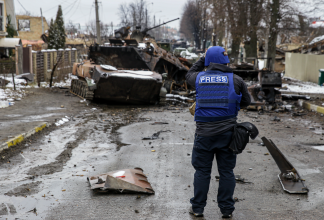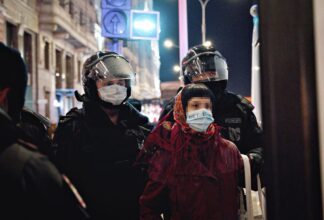New Draft Law Further Undermines Civil Society in Russia
Russian authorities have taken new steps to further shrink the space that civil society can operate in by proposing a new law on “undesirable foreign and international organisations”. On January 20 the lower house of the Russian parliament, the Duma, adopted the bill in its first reading with only two deputies voting against it.
Two more readings are required under Russian law after which it is sent to the upper house of Parliament for approval and from there on to the President who has the power to sign or veto the law.
Over the past year Civil Rights Defenders has seen several of its longstanding partner organisations in Russia registered under the Foreign Agents Law, which forces them to call themselves “foreign agents” – a term that is widely interpreted to mean spy or traitor.
According to the new bill now tabled in the Duma any foreign or international organisation “who poses a threat to the defence capacity and security of the state or to public order, public moral or to public health” can be designated as undesirable by Russia’s Prosecutor General.
Any individual working for an organisation declared undesirable can be subject to an administrative fine of up to 100 000 roubles (approx. 1500 euro). For repeated offenders the law provides for up to 8 years imprisonment and foreign nationals can also be expelled from Russia under the law.
“If one looks at the broad implications of the Foreign Agents Law there is little doubt that this new law can ultimately be used to prevent international human rights organisations from working in Russia. It will also make it harder for local human rights defenders to continue their vital work because the law punishes anyone who receives any kind of financial support from an undesirable foreign organisation with draconian sanctions” says Roemer Lemaitre, Programme Director of Eastern Europe and Central Asia Department at Civil Rights Defenders.
Civil Rights Defenders urges the Russian Duma not to adopt this bill because it clearly violates Russia’s obligations under international human rights law. The bill severely restricts key. fundamental rights, especially when it comes to freedom of association.


